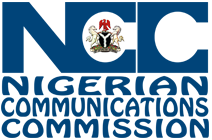 |
NIGERIAN COMMUNICATIONS COMMISSION
|
 |
INTRODUCTION
The New Media & Information Security (NMIS) Department was setup to tackle emerging new media developments and information security issues facing the country due to the rapid growth of new media technologies and the internet as an alternative source of communication.
New Media refers generally to technologies that enable digital interactivity, including on-demand access to content anytime, anywhere, on any digital device, as well as enabling interactive user feedback, creative participation and community formation around the media content. An aspect of New Media is the real-time generation of new, unregulated content which is what has enabled the fast adoption and growth of the internet, but which also poses several new challenges.
The NMIS Department is made up of three (3) units:
- Cyber Security (CS) Unit
- New Technology Assessment (NTA) Unit
- Internet Governance (IG) Unit
LOCATION
Fifth (5th) Floor,
Nigerian Communications Commission Head Office Annex,
Communications and Digital Economy Complex,
Mbora,
Abuja, FCT.
Email:
HEAD OF DEPARTMENT
Engr. Babagana Digima
09-4617000; 09-4618370
Email:
PURPOSE STATEMENT
To support the Commission in the governance and security of the nation’s cyber space, and to facilitate the adoption of innovative technologies, and the acquisition of ICT skills.
DEPARTMENT FOCUS
- Oversee the Commission’s activities in ensuring the development of strategies, principles and guidelines to ensure integrity of the nation’s cyberspace and interactive digital media.
- Develop strategies aimed at promoting internet penetration and effective usage in Nigeria.
- Provide strategic leadership and direction to the Commission on internet-related issues such as governance and cyber security.
- Contribute to the development and review of policies, laws, regulations, other documents and frameworks, on cyber security.
- Champion the development and implementation of cyber security initiatives towards monitoring, detecting, analyzing, responding to cyber security incidents and improving the security posture of the communications industry.
- Build and maintain strategic relationships with key agencies and bodies to define tactics that can be employed in ensuring a crime-free cyberspace.
- Coordinate the conduct of Commission’s sponsored ICT training for tertiary institutions through the Digital Bridge Institute.
- Contribute to the Commission’s policy and strategic initiatives by facilitating, developing, and implementing projects, structures and policies towards better internet governance, in collaboration with relevant stakeholders.
- Coordinate NCC’s participation at the Internet Governance Forum (IGF) and update the Commission on recent developments and global responses on emerging issues.
- Define strategies aimed at improving the level of awareness of stakeholders and the general public on developments as it relates to internet governance and cyber security.
- Facilitate the development of relevant frameworks that relate to new media technologies, which stems from the constructive analysis of their development and adoption all through to maturity.
- Coordinating the Commission’s cyber security outreach and awareness programmes aimed at advising the general public and stakeholders on the risks and primary measures that may be adopted to reduce the incidence of cybercrime.
- Partner and collaborate with relevant local, regional and international agencies and departments to define confidence-building measures, norms and principles for acceptable behaviours in cyberspace.
SERVICE DELIVERY TO STAKEHOLDERS
The Department receives requests from relevant stakeholders.
Requests are responded to accurately and efficiently.
The Department communicates acknowledgement of receipt of request to stakeholders within 48 hours of receipt of such request.
Feedback on status is provided, in writing, via email within 72 hours of receipt of request, within the regular business hours Monday to Friday 8.00am to 5.00pm of the work week; weekends and public holidays not included.
Response to requests, when ready, will be sent in hard and soft copies to the stakeholder.
STAKEHOLDER ENGAGEMENT
The New Media and Information Security Department through the various approved channels holds meetings, workshops, and collaborates with other agencies to organize fora that address internet related issues, in addition to trends and developments in new and emerging technologies.
The Department holds consultative meetings with the relevant stakeholders and has an approved online platform/portal through which it holds online meetings and receives public comments, thus promoting the multi-stakeholder process of policy development.
Annually, the Department in collaboration with the Federal Ministry of Communications, Innovation and Digital Economy (FMCIDE), Nigeria Internet Registry Association (NIRA), and National Information Technology Development Agency (NITDA), organizes the Nigerian Internet Governance Forum (NIGF) where all stakeholders convene to discuss, share productive ideas, best practices and experiences on opportunities/challenges peculiar to the country as it relates to the internet. This leads to a harmonization of Nigeria’s position which is presented at the regional and global IGF. Adoptions at the global and regional fora are used to drive developments, principles, rules and norms by which the internet is governed.
The Department also coordinates and monitors the Commission-sponsored Advanced Digital Empowerment Programme for Tertiary Institutions (ADEPTI) training for academics and senior administrators in tertiary institutions across the country, in collaboration with Digital Bridge Institute (DBI). The training is intended to equip beneficiaries with functional ICT skills that enable them improve their work output, improve quality of learning in their domains, and by extension their careers.
The department partners with relevant stakeholders, organizations and agencies on cyber security, through cohesive mechanisms and initiatives to support the nation’s cyberspace. It collaborates with identified partners on issues that border on cyber security, facilitating intelligence gathering and exchange of information to enable efficient operations for all stakeholders involved.
Through its cyber security engagement and outreach initiatives, the department raises cyber security awareness within the country using all forms of media (traditional and new) to disseminate information. This provides the public with information to improve their safety and security online.
Through its Computer Security Incident Response Team (CSIRT) and its Digital Forensic Team, the Department works with industry and stakeholders to provide support and advisories. This helps in securing the critical telecommunications infrastructure in the country.
The Department supports the development of the cyber security ecosystem through facilitating workshops that help the Commission’s workforce keep abreast with developments. This is useful for the safeguard of the enterprise infrastructure from compromise while ensuring their safety online.
The department monitors global developments, existing legal and regulatory provisions as it relates to Cybersecurity, to ensure compliance. This also provides guidance and intelligence that will help the industry put in place necessary security measures.
STAKEHOLDER INFORMATION
-
Federal Ministry of Communications, Innovation and Digital Economy
-
Mobile Network Operators
- Consultants
- Members of Staff
- SERVICOM
- MDAs
- Nigerian Police Force
- Academia
- Association of Telecommunications Companies of Nigeria (ATCON)
- Association of Licensed Telecommunications Operators of Nigeria (ALTON)
- Internet governance organizations
- Other CSIRT/CERTs
- Other Law Enforcement Agencies
- Office of the National Security Adviser
- Nigerian internet Registry Association
- Nigerian Communications Service Consumers
- Nigerian Communications Service Providers
- Nigerian Internet Service Providers
GRIEVANCE REDRESS MECHANISM
Stakeholders are enjoined to seek redress by calling or preferably writing to the Officer whose details are listed below:
Elizabeth Yisa
New Media & Information Security Department,
Fourth (4th) floor, Nigerian Communications Commission Head Office Annex,
Communication and Digital Economy Complex,
Mbora, Abuja.
Tel: 09-4618375; 09-4617000
Email:
CHARTER REVIEW
This Charter will be frequently revised to make sure it remains relevant and valid, based on input from all stakeholders.
CONCLUSION
Due to the quick expansion of new media technologies and the internet as a substitute for traditional communication channels, the New Media & Information Security Department seeks to address growing new media developments and information security challenges that the nation is confronting.
